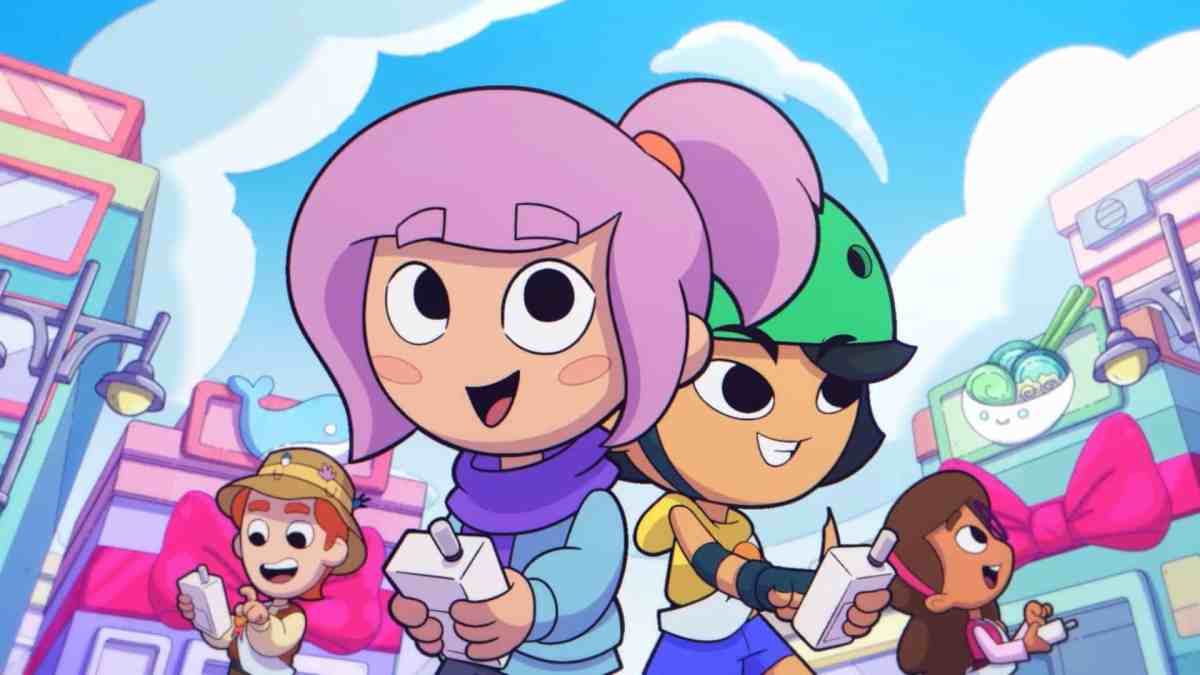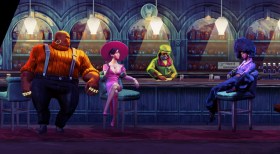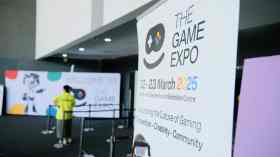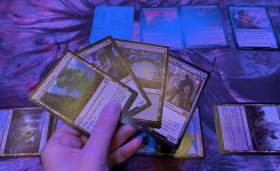Conversations around Australia’s local video game development industry typically centre around Victoria, thanks to sustained government support and incentives provided over a number of years. But while it’s often considered the “hub” of the local industry, Queensland is swiftly proving its own mettle in the video game arena.
It’s not just high profile smash hits like Witch Beam’s Unpacking or Sbug’s Webbed which are garnering acclaim for the state – there’s now a concerted effort to support new and emerging developers in the region, with support from government bodies, as well as social events aiding the growth of a tight-knit culture. For developers working in the region, the strengthening of this culture has fostered a better, more overtly supportive community, and one where more creative games can thrive.
“It’s pretty cool,” Garth Edwards, co-founder, CEO, and lead programmer at Broadside Games (Bears in Space) told us of the local Queensland game development scene. “There’s regular meet ups for general game dev or for Unreal-focused game devs – it’s always relatively big groups, and always super friendly.”

Edwards and his Broadside Games partner, John Eyre (also co-founder and CEO), attended community meetings regularly while working on Bears in Space, and found a sense of shared creative connection. For comparison, Edwards labelled the Queensland meetups “way more laidback” than meetups in other states.
“It’s more approachable,” he said. “I think maybe Queenslanders in general are a bit more laid back.”
With that sense of approachability, the Broadside Games team were able to foster firm connections with their fellow game developers – which also encouraged new skill development, shared feedback, friendships, and the confidence to pursue a more ambitious vision for Bears in Space.
For Cheryl Vance, founder of Prideful Sloth (Yonder: The Cloud Catcher Chronicles, Go-Go Town!), it was this culture of approachability that inspired the establishment of Prideful Sloth in Queensland in 2015.
“It’s been fantastic – it’s been really good,” Vance told GamesHub. “We moved overseas to the UK [after] the GFC collapse for a while, and came back [to Queensland] in 2015 to set up the studio … We came back here and set it up, and it’s been really supportive.”
“If you’ve got a question, there’s so many people to reach out to … we’re not really in each other’s business, we’re all doing our own thing, [but] there’s support networks when you put up your hand and ask for it … it’s there if you need it.”
Vance puts a lot of this warm, laid back nature down to the state being occupied by tenured game developers, most of whom managed to weather the GFC storm that saw many large, AAA studios in Australia shut down by the 2010s. Vance pointed to former employees of Krome and THQ who remained in Queensland as leaders in the space, and bolstered the growth of support networks based on their own knowledge and passion for the games industry.
Queenslanders have made incredible games for years, but in the growth of developer networks and with this more connected, shared creativity, the voices of local developers in the state have become harder to deny. It’s far to say that recent funding initiatives established by the Queensland government are a product of these networks – of government bodies sitting up, and taking notice of the talent within the region, and the potential of Queensland-created games.
As Vance describes, while government initiatives started on a small scale with limited funding and strict criteria, a growing understanding of the value of video games – for entertainment, art, culture transmission, and connection – has led to rapid expansion of funding and development opportunities in Queensland.
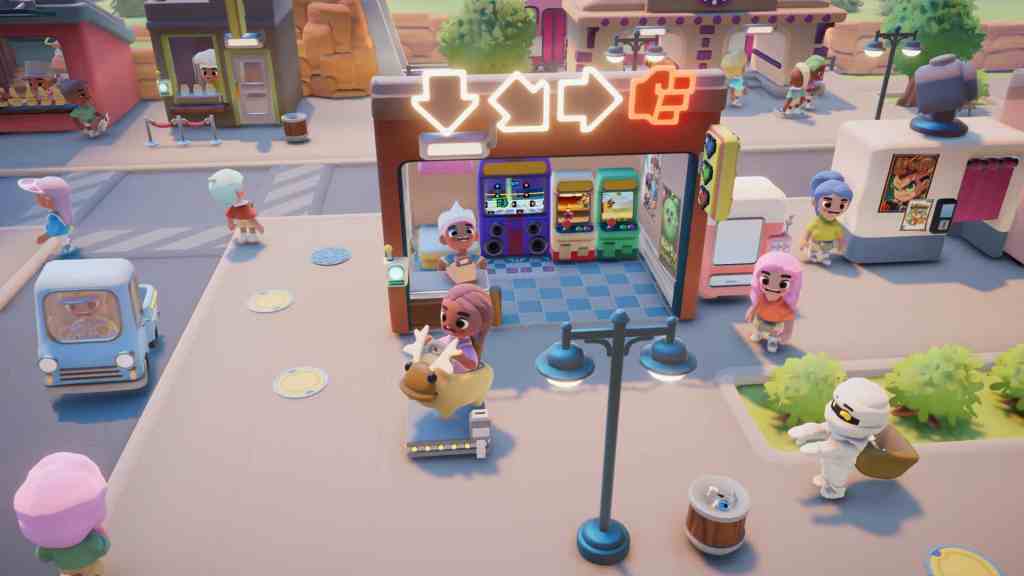
“The shift to bigger buckets has been amazing,” Vance said. Working on games like Grow: Song the Evertree and Go-Go Town!, Prideful Sloth has been able to take advantage of a range of state-based and federal government funds, including travel grants to attend international networking events. The studio has also gained tax cuts, thanks to the Digital Games Tax Offset (DGTO).
This federal incentive, introduced in mid-2022, allows studios working on projects exceeding AUD $500,000 in expenditure to gain a 30 per cent refundable tax offset, which reduces the overall cost of game development. Screen Queensland also fills gaps around this incentive, providing developers with funds to work on emerging and established game projects.
“[Go-Go Town!] has been supported pretty much from the start,” Vance said. “[Screen Queensland] has been fantastic for helping us navigate all of this stuff … they want to try to help teams succeed.”
According to Vance, there is a strong feedback process with Screen Queensland, as the organisation is looking to improve the work of individual studios as a whole, and strengthen their pitches throughout the game development process.
Read: ‘Find your weird, and bring it to us’: Screen Australia on supporting Aussie-made games
“Through some advice we’ve gotten, we’ve been doing play tests, and stuff we hadn’t factored into the original [plan] … they’ve been so supportive, in terms of allowing us that flexibility to change how we approached what we were doing.”
According to Jed Dawson, Head of Games at Screen Queensland, there is now a deeper understanding of why games are important, within the organisation. Dawson himself previously worked as a game developer, and co-created silly physics game, Speaking Simulator.
“Australians have unique and diverse stories to tell and ways to play,” Dawson said. “By sharing Australian stories in video games, we connect ourselves to the world while fostering a deeper connection to our cultural identity and heritage.”
Since the introduction of Screen Queensland’s Digital Games Incentive, Games Grants, and Games Residency programs, Dawson says the state “has created of over 500 full-time game development jobs, kickstarted over 20 new games, and attracted multiple new companies” to Queensland. But beyond the numbers, Dawson is most proud to have witnessed the impact of Screen Queensland’s funding on individual developers, who have grown their ambitions and talents with the support of the organisation.
“Screen Queensland’s games programs are designed to support developers at every stage of their career, and we’re starting to see people who participate in early career programs like the Games Residency grow their skills and confidence to a point where they are now at a globally commercial level,” Dawson said.
“Knowing that we’ve played a key part in creating the opportunities for people to achieve their game development dreams brings a profound sense of fulfilment.”
For studio Toast Interactive, which is currently working in the virtual reality (VR) arena, the support of the local Australian government and Screen Queensland funding significantly reshaped how the studio functions, and hires staff. As CEO Kylee Kay told GamesHub, more government support for Toast Interactive boosted the studio’s ability and desire to hire locally, and to foster new talent.
“With the DGTO, we now have a policy to of hiring locally,” Kay said. “The focus of the DGTO [for Toast Interactive] has been the talent that it buys us, and the general reduced cost of production … The DGTO allows us to add things to our programs, such as more resourcing for marketing, award entries, and sending more people to GCAP and GDC.”
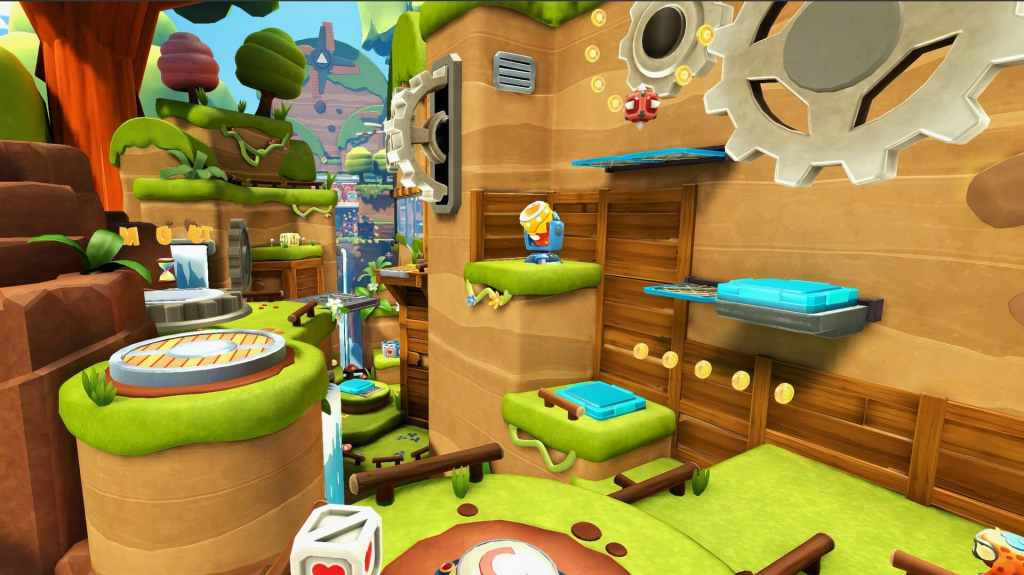
Screen Queensland funding – specifically the Digital Games Incentive has also supported work on Toast Interactive’s Max Mustard, a VR platformer starring a young mudpup-rescuing hero. According to Kay, the investment will allow the studio to invest in the future of VR, which remains an emerging technology.
“We’re scratching the surface,” Kay said. “We’re probably 3 or 4% of where we expect to be in five years. [VR] is still in its infancy, and there’s still so many challenges with how we can use it, and who can use it, and how we invest in that use.”
Kay believes that with the support of Screen Queensland, and federal government funding, Toast Interactive, and other local studios, are uniquely positioned to grow and thrive over the coming years – despite the games industry currently going through a period of relative downturn.
Read: What video game funding really means for local Australian developers
This support has also aided future plans at Toast Interactive, which include a PSVR2 port for Max Mustard, as well as VR games for
In speaking to Kay, Eyre, Edwards, and Vance, what was most clear is that there is strong, loud momentum building within Queensland’s local game development scene, after years of quiet achieving. Conversations around local game development in Australia may tend to rotate around Victoria for now, but Queensland is fast becoming a hub for innovative new games and talent.
The talent has always existed. But with more opportunities for emerging game developers to grow stronger together, and tangible government support, the local Queensland game development scene has a new chance to shine – and to turn the tide of popular conversation.
